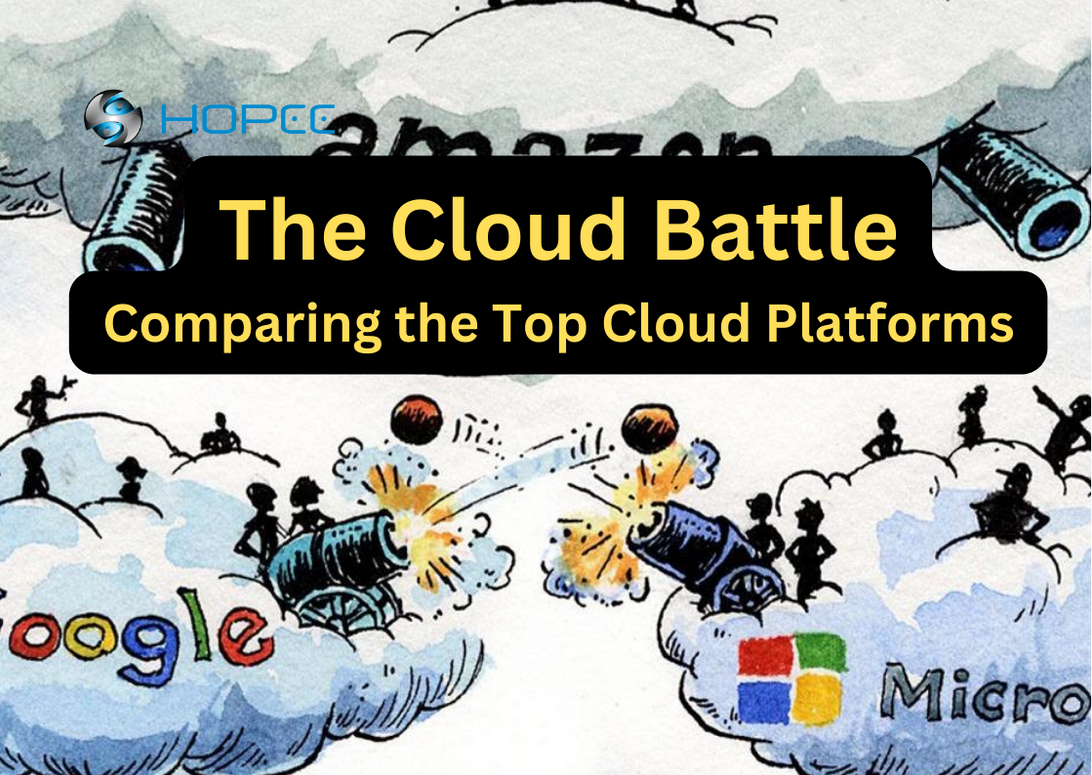Cloud computing has become an essential aspect of modern business operations, enabling companies to store, process, and access data and applications over the internet. Many organizations are turning to cloud service providers to host their applications, store their data, and manage their computing infrastructure. We’ll compare some of the most popular cloud computing platforms to help you make an informed decision about which platform is best for your organization.
1. Amazon Web Services (AWS)
Amazon Web Services (AWS) is the largest cloud computing platform, offering a wide range of services, including computing, storage, and databases. There is a variety of services that can be easily scaled up or down, depending on the needs of the user. This makes AWS ideal for organizations of all sizes, from startups to large enterprises.
One of the biggest advantages of AWS is its scalability. With the ability to quickly add or remove computing resources, AWS can accommodate organizations as they grow. Additionally, it offers a wide range of tools and services for organizations to get started with cloud computing.
Another advantage of AWS is its security. AWS provides a range of security services, including firewalls, intrusion detection, and encryption, to help organizations protect their data and applications. Additionally, AWS has a strong track record when it comes to data security and privacy.

2. Microsoft Azure
Microsoft Azure is another popular cloud computing platform, offering a wide range of services, including virtual machines, databases, and storage. Azure is designed to be highly scalable and flexible, making it a good choice for organizations that need to quickly add or remove computing resources.
One of the biggest advantages of Azure is its integration with Microsoft products, such as Office 365 and Windows Server. This makes it easy for organizations to move their existing applications and data to the cloud. Additionally, Azure offers a range of security features, including encryption and multi-factor authentication, to help protect sensitive data and applications.
Another advantage of Azure is its global reach. With data centers located around the world, Azure is able to provide fast and reliable access to cloud computing resources, no matter where an organization is located. This is especially important for organizations with a global presence or customers in different regions.
3. Google Cloud Platform (GCP)
Google Cloud Platform (GCP) is a cloud computing platform that offers a range of services, including computing, storage, and databases. GCP is known for its scalability, making it a good choice for organizations that need to quickly add or remove computing resources.
One of the biggest advantages of GCP is its integration with Google’s suite of productivity tools, including Gmail and Google Drive. This makes it easy for organizations to move their existing applications and data to the cloud. Additionally, GCP offers a range of security features, including encryption and access control, to help protect sensitive data and applications.
Another advantage of GCP is its use of artificial intelligence and machine learning. They can help organizations make use of big data to drive business insights and improve decision-making.

4. IBM Cloud
IBM Cloud is a cloud computing platform that offers a range of services, including virtual machines, storage, and databases. It is designed to be highly scalable and flexible, making it a good choice for organizations that need to quickly add or remove computing resources.
One of the biggest advantages of IBM Cloud is its integration with IBM’s suite of products, including Watson and Blockchain. This makes it easy for organizations to make use of IBM’s advanced technologies to streamline their operations and improve their services. With its robust infrastructure, global network, and highly skilled experts, IBM Cloud provides a reliable and secure platform for businesses of all sizes to run their applications and store their data.
5. Oracle Cloud
Oracle Cloud is a comprehensive cloud computing platform that provides a range of services, including infrastructure as a service (IaaS), platform as a service (PaaS), and software as a service (SaaS) offerings. It delivers high-performance and cost-effective cloud services with unique features and capabilities. Its Autonomous Database automates database management tasks, reducing the risk of human error and freeing up IT resources.
Oracle Cloud also offers advanced security features, such as built-in encryption and advanced threat protection. Whether you’re looking for scalable infrastructure services, a powerful platform for developing and deploying applications, or a complete suite of enterprise-grade SaaS solutions, Oracle Cloud has you covered.




